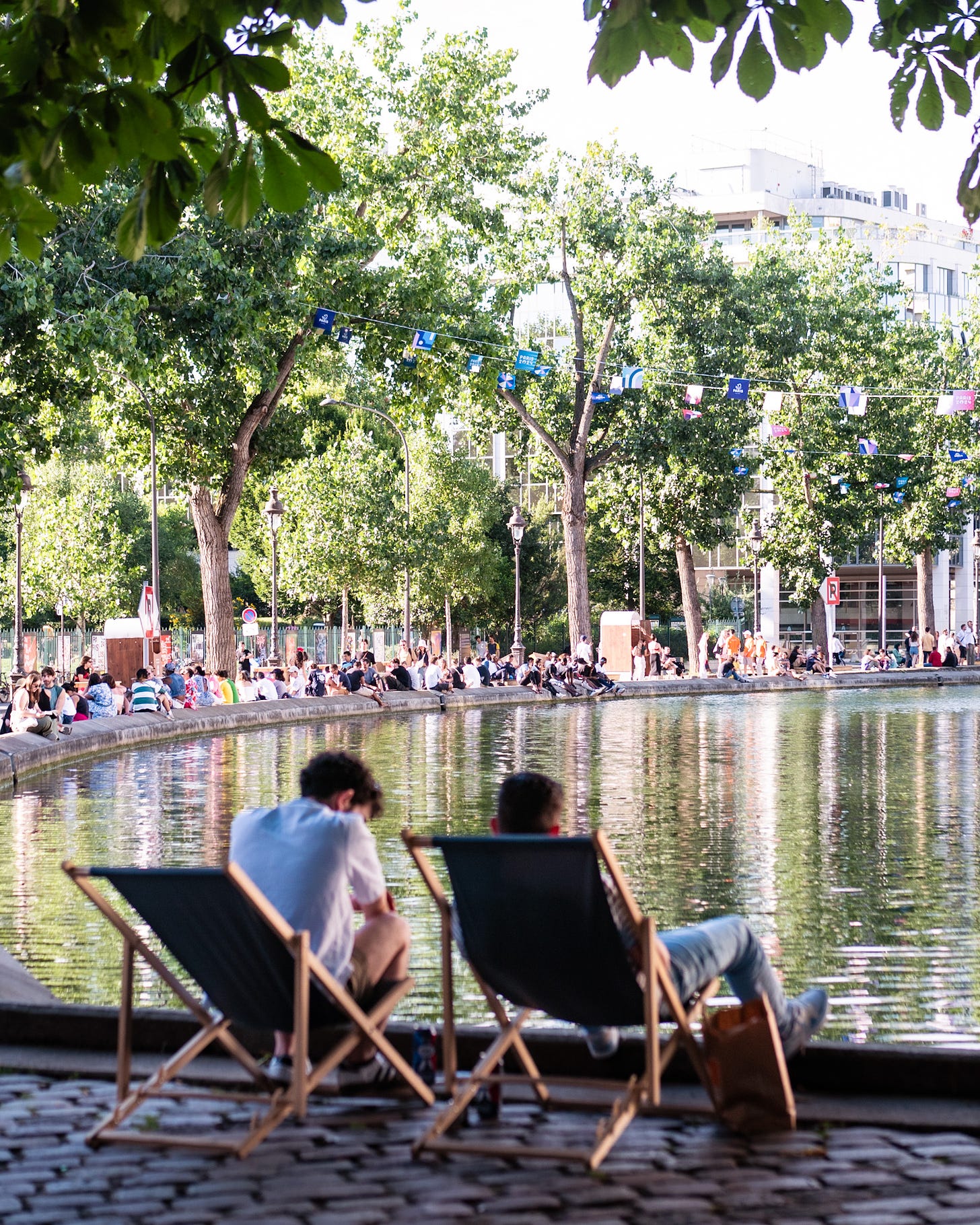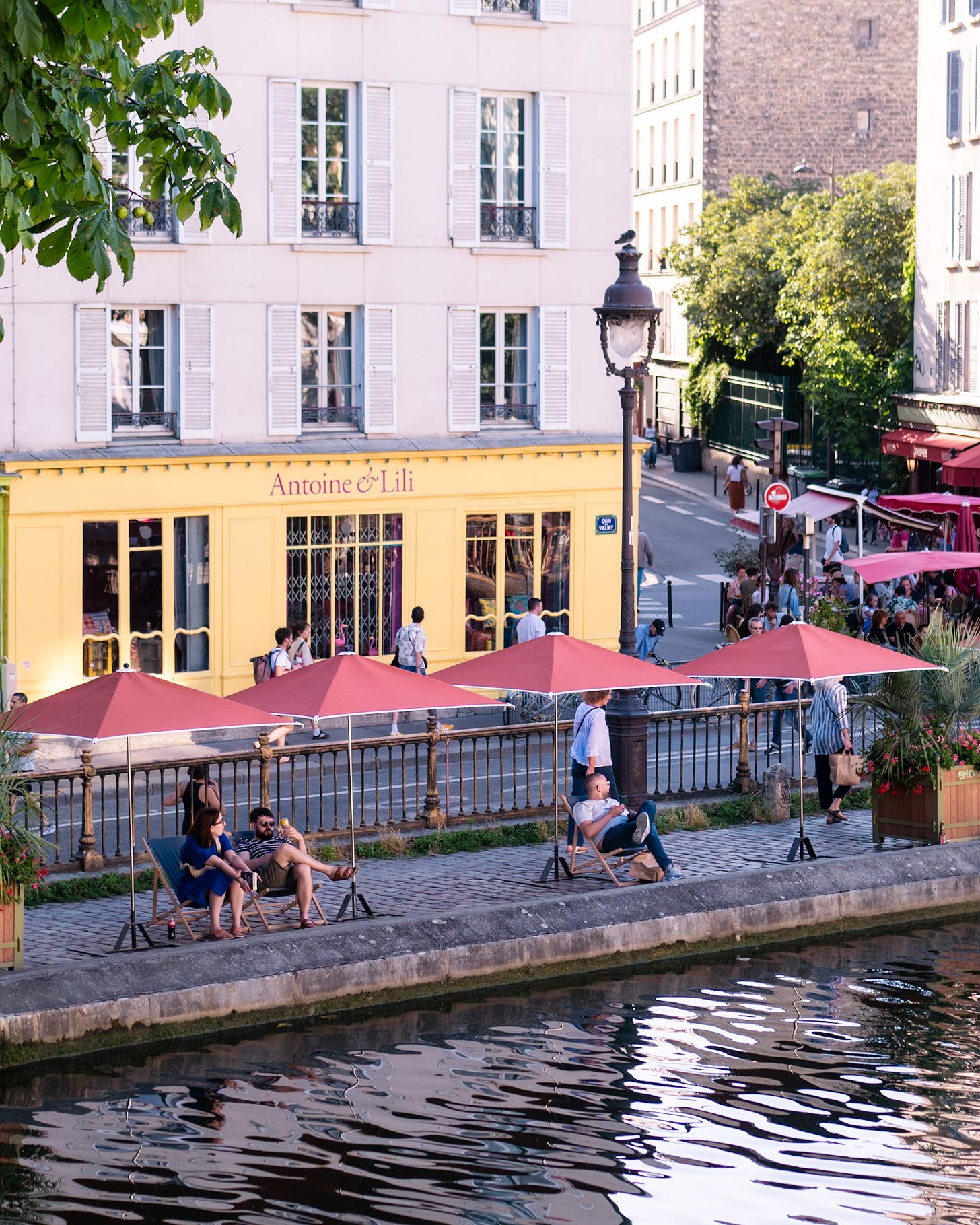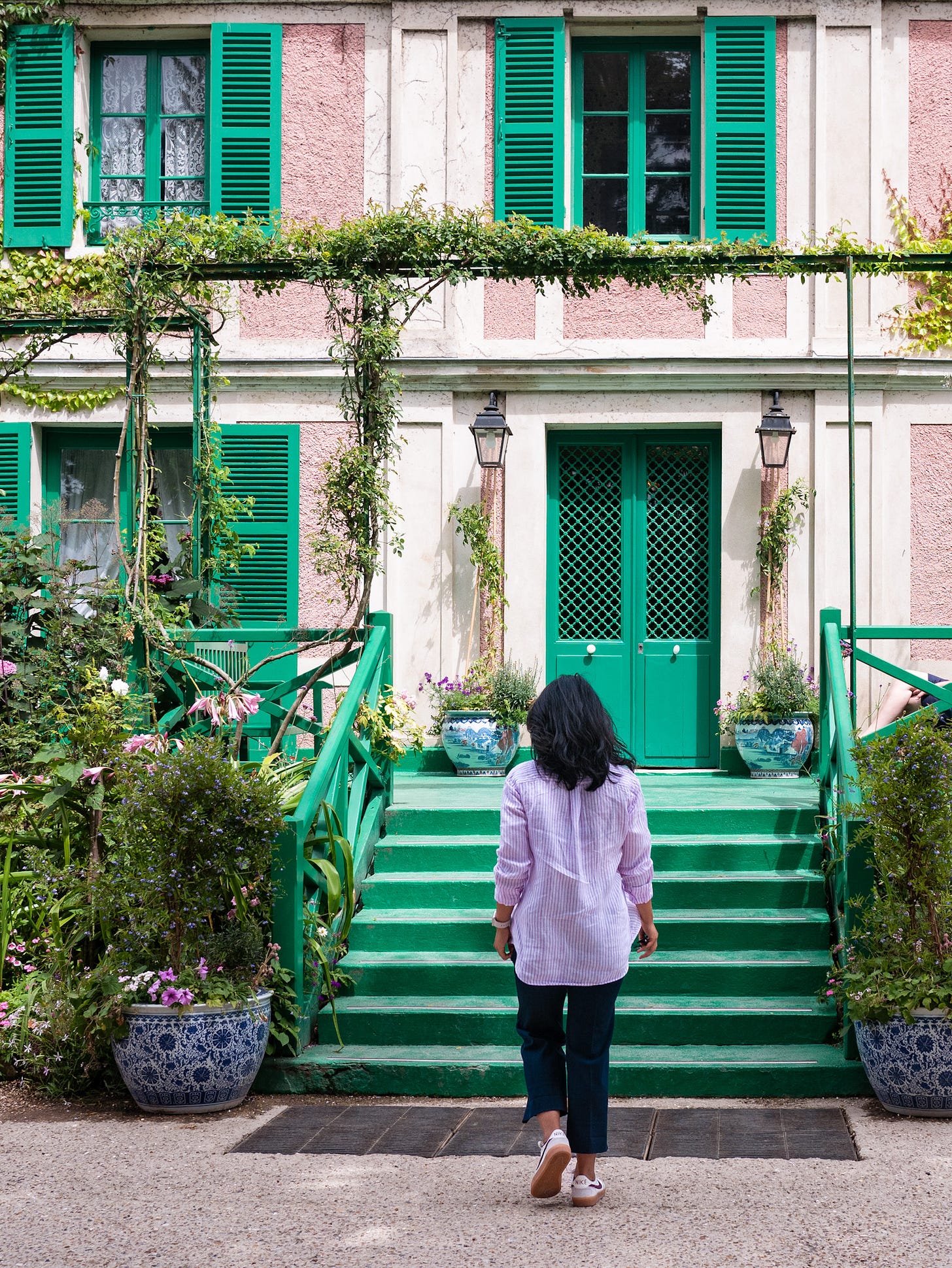French summer vacation and pretty French words
A long weekend ahead, dépaysement, plus latest articles on Détours
This letter is going out right before a long weekend in France ( and a number of other countries in Europe like Spain and Italy). It is one of the last long weekends this summer, and needless to say people are going to be taking advantage of it.
That les vacances might be a determining aspect of French life, is not an original thought at all. As the country where all employees are entitled to 25 days of paid holiday leave every year, the holidays are the heart and soul of work-life balance, and social conversations. Right after food, of course.
What struck me when I first moved to France, was not just the amount of holidays people were mandated to receive, but also the rhythm of holidays. It felt as if the whole country went to, and got back from their holidays, at the same time.
The French vacation rush
Even if France as a country upholds individualism and freedom of expression, there still happens to be a lot of (informal) standardisation of social life. What I mean to say is that, there are aspects of French life, which the French tackle in a homogenised way. This could be as simple as how you are supposed to greet someone, to the order in which to eat your cheese and drink your wine, or even what food combinations taste good or bad (apparently that too is an objective fact for many French).
Then of course, the French also depart to and return from their vacations at the same time. Don’t believe me? Well, so predictable is the flow of vacationers in France, they have enshrined specific words for this phenomenon in their vocabulary. There are two sets of vacationers: Juillettistes, the ones who vacation in July, and Aoûtiens, the ones who vacation in August. If you happen to vacation in any other months, too bad! You don’t get a word by which to call yourself.
One might argue that such vacation rush follows from the ideal of standardised socio- cultural behaviour. For other’s, it just logical reasons such as the warm weather in summer, and the school holidays which enable families to take days off together, and let loose. July and August are the months where most things in France don’t work. Restaurants close up, shops are shut, whole cities empty out, as people head to the beaches and lakes, and away from la vie quotidienne.
As a (former?) sociologist, I love these kind of large-scale events which come about seemingly because of micro-level individual decisions, but in fact, are determined by macro factors. These factors runs the gamut, including French policy of assimilation, capitalist work schedule, school year, weather, administration, what vacation culturally symbolises, economic & occupational class etc.
Observing the vacation rush that shows up in the form of traffic jams on highways and crowded beaches with the onslaught of vacationers, is a reminder that human beings too are part of the seasonal migratory cycles, like birds and penguins. We too move similarly at the same time.
My favourite vacation word and phrase
Even though learning French often feels like a constant uphill battle, I do love and appreciate, and am sometimes, strangely moved by certain French words. These often describe specific feelings or states of mind that I recognised, but didn’t have a word for. Here are two vacation-related French expressions I love.
Do you have any specific French words you love or hate? Let me know!
Dépaysement
It’s one of those words that doesn’t translate neatly into English but would resonates with all of us. Dépaysement is the feeling of being out of place, disoriented, but in a strangely thrilling way. It is neither positive nor negative. It captures the first brush with a new, dawning realisation of dislocation.
Dépaysement can hit you on a quiet Sunday in Paris, when the city is suddenly too still, and you are struck by how you’ve slipped into a different rhythm than the one you’re used to. It could be that first moment when you try to make sense of a menu in a language you barely know. Or it can come about in the middle of discovering a whole new country or continent.
I find dépaysement fascinating because it’s a reminder that our sense of belonging is so often tied to routine and place. Its also an invitation to embrace the unfamiliar, to step outside the known paths and see what happens when the world isn’t quite what we expect.
Changer d’air
Changer d’air literally means ‘to change the air.’ But of course, this isn’t about opening a window. It’s about escape, a necessary reboot when life starts to feel like it needs a figurative refreshening of air.
You might changer d’air by hopping on a train to the countryside, or choosing to work from a park instead of your desk. Here too, the connection between physical spaces and mental state is so eloquent. Sometimes all you need to shake off lethargy or boredom or even the blues, is to physically uproot yourself, even if just for a day or an hour.
I too am planning to changer d’air this weekend. I will be travelling some place I have never been. Stay tuned to hear more about it in the next letter.
Articles from Détours
It’s been almost 3 months that I started my slow travel and lifestyle website Détours. I usually begin any new creative endeavour for the pleasure of creating, without being dependent on the external validation of ‘success.’ But it is still rewarding for all the work to come into fruition.
Détours has now received more than 10K visitors and a certain croissant article has even trended on Google! Yoo-hoo! Hopefully we can double that number in the coming weeks.
To wrap up this letter, here’s your bi- monthly fix of reads from Détours.
Claude Monet’s house in Giverny has a special place in the cultural landscape of France, and indeed, of the world. Read along to find out how to reach Monet’s house and garden in Giverny, as well as what to expect.
A visit to Monet’s house and garden in Giverny
A 25-minute train ride will get you from Paris to the magnificent Château de Chantilly and its sprawling grounds. Not only is it a welcome escape into the French countryside, but it is also an extremely important centre of French history, culture and art. Chantilly is also an ideal day trip from Paris.
5 reasons to visit Château de Chantilly: A perfect Paris day-trip
If you enjoy the two photos today, find out more about the Canal Saint Martin in this article. If you want to go see how locals in Paris spend time, go up to the canal for some people-watching. This vibrant neighbourhood is bustling with life, music, and food.
Canal Saint Martin: In the vibrant heart of Paris’ bohemian arrondissements
Jardin Anne Frank is a hidden gem, quiet literally tucked away from the hustle and bustle of the busy Paris streets. This garden also has a very special tree which has been categorised in the list of arbres remarquables or 'remarkable trees' of Paris.
Jardin Anne Frank: An idyllic Paris garden with a ‘remarkable tree’
Have a great week ahead, and see you next Wednesday.
A bientôt!
Pronoti






